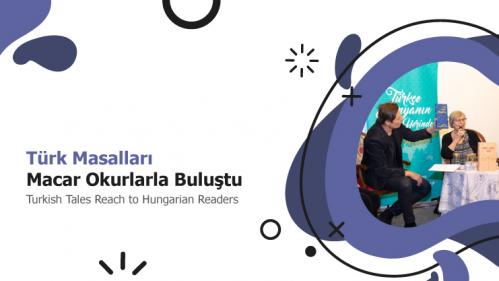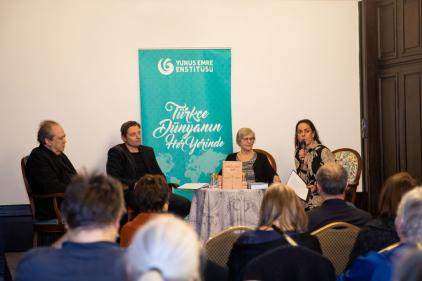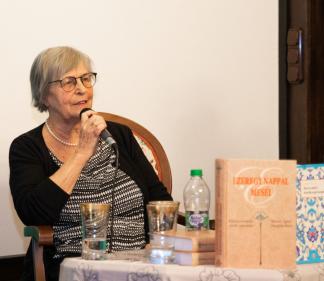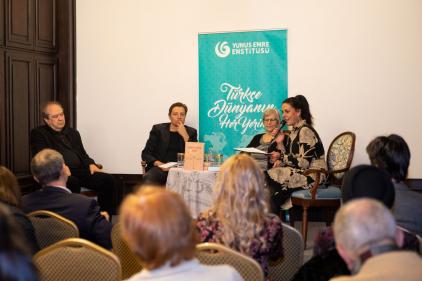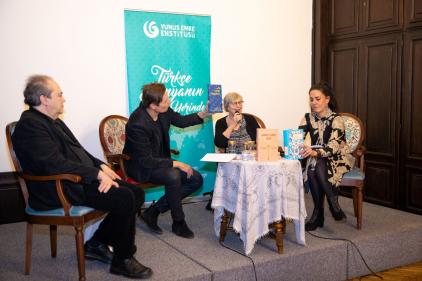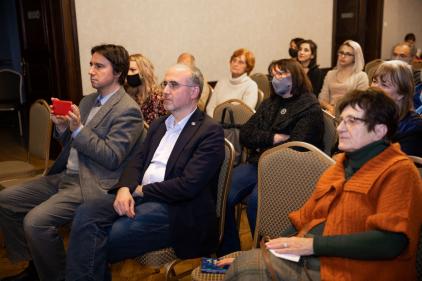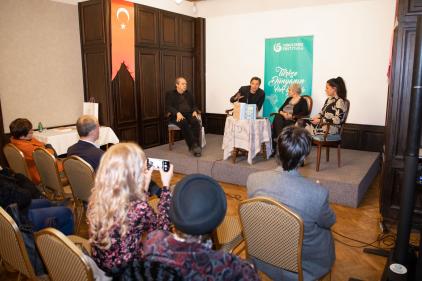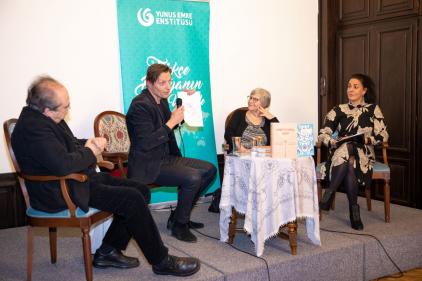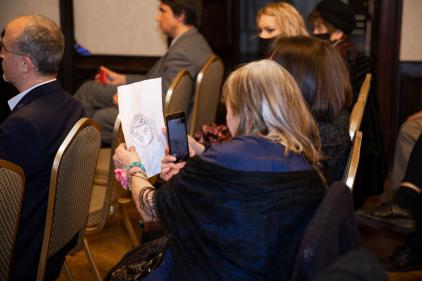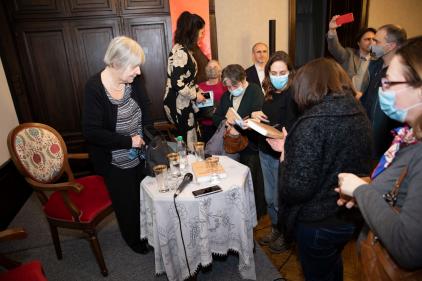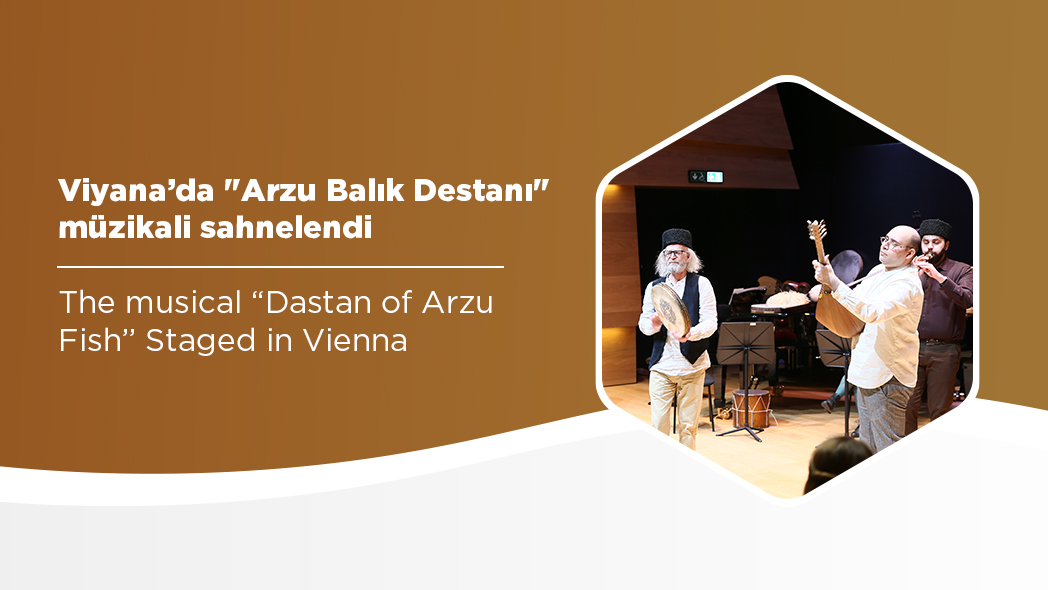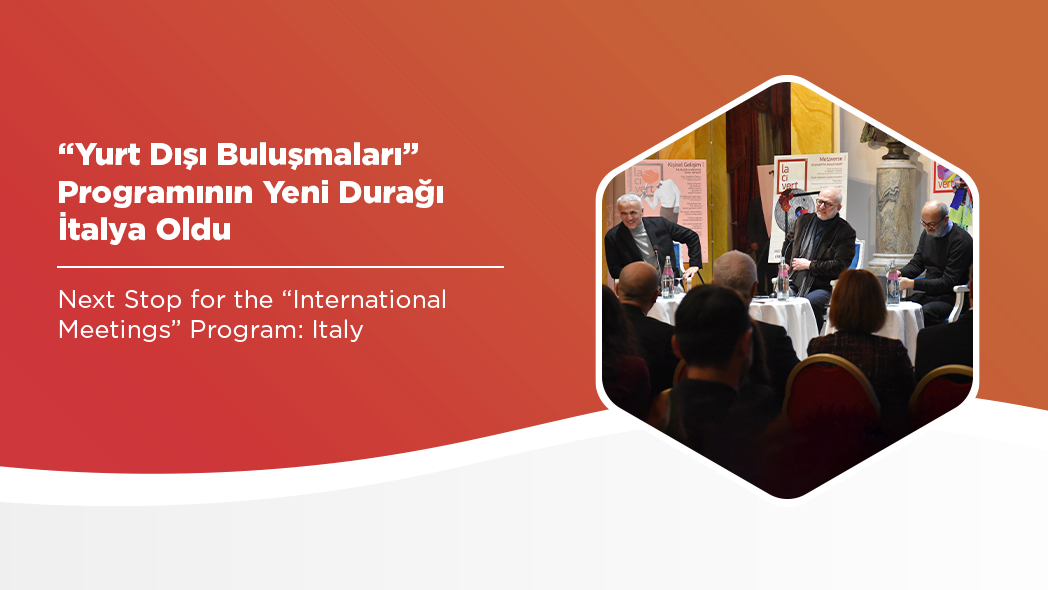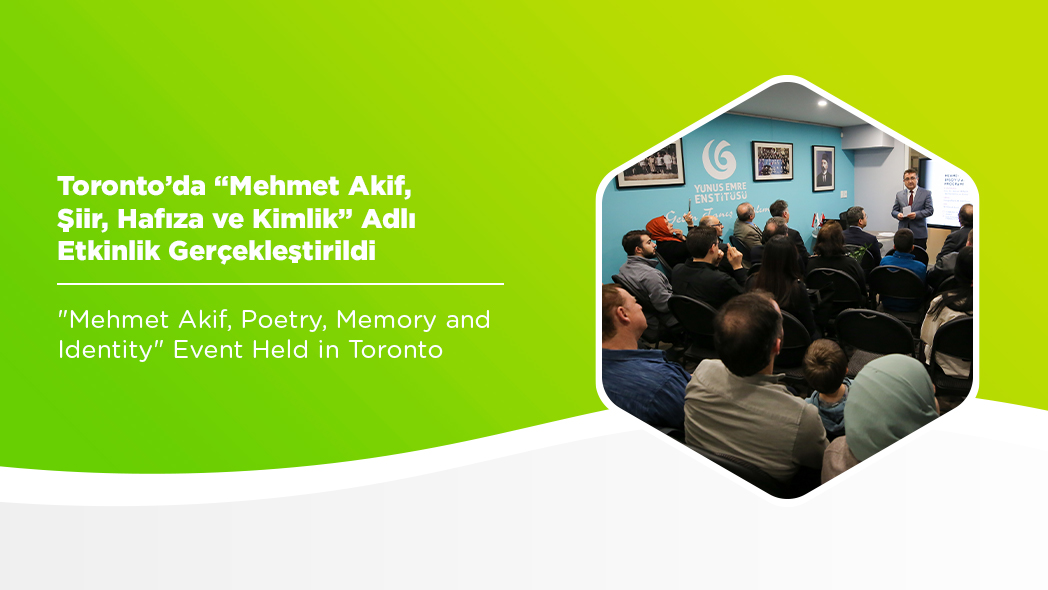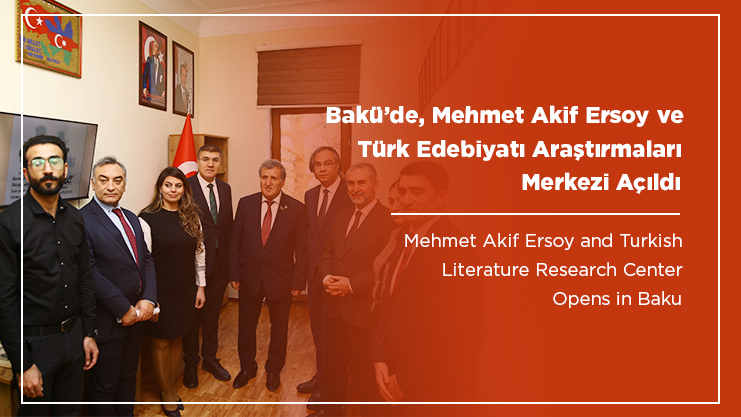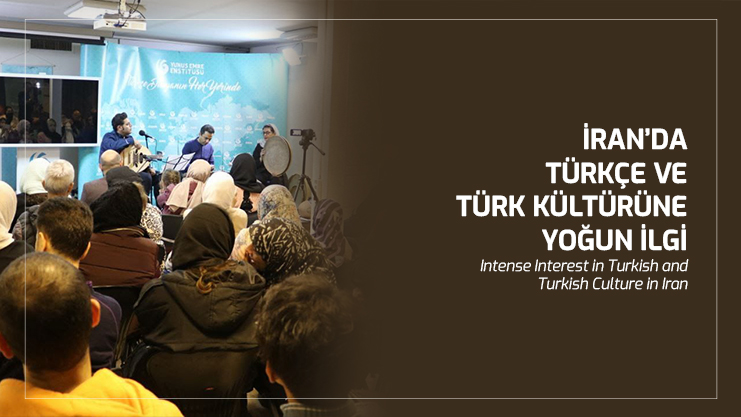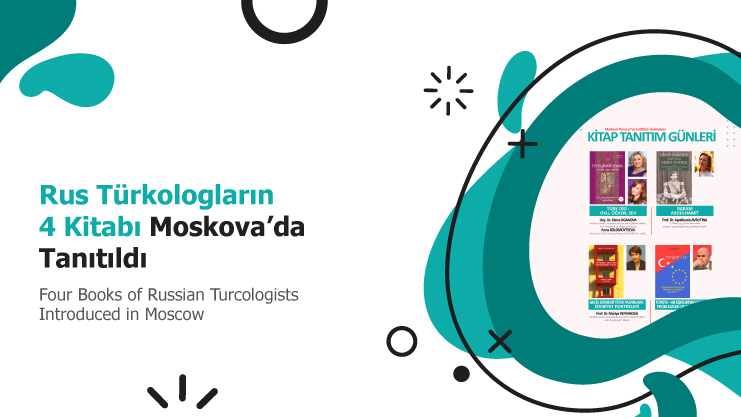Turkish Tales Reach Hungarian Readers
“Ninety-eight Turkish Folk Tales” book written by Ignác Kúnos was introduced to the readers within the first Culture and Arts Session of the 2022 in Budapest Yunus Emre Institute.
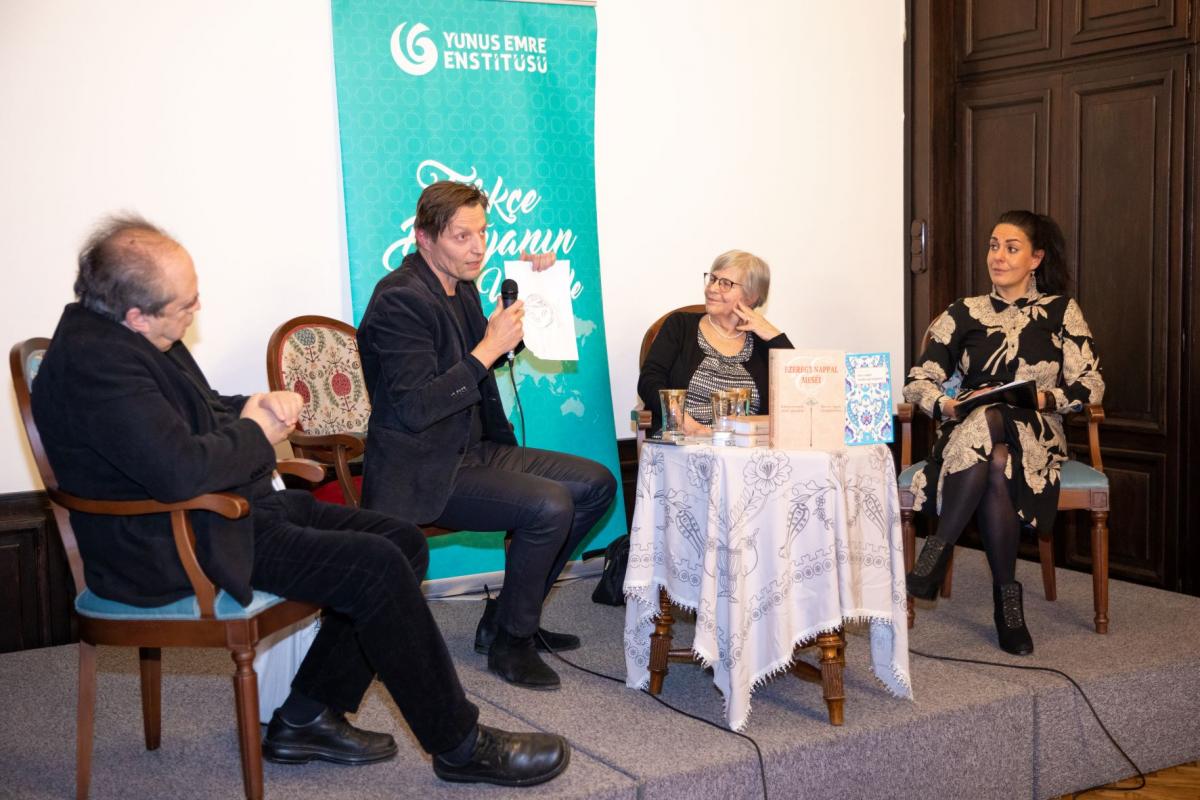
Ninety-Eight Turkish Folk Tales was translated to Hungarian under the title “A Thousand- and One-Day Tales” by Turcologist Edit Tasnádi and published by Eötvös Loránd Research Network, Human Sciences Research Centre in 2021
In the event moderated by the Turcologist Pál Laura, Edit Tasnádi stated that she had wanted to introduce the tales in the two-volume work written by the famous Turcologist Ignác Kúnos between 1887-1889 with Hungarian readers since her student years, and that she was very happy to realize this dream.
In the event, ethnologist and Turcologist Dávid Somfai Kara and László Kúnos, who is both a famous literary and translator, also the grandson of Ignác Kúnos, spoke about the book and the works of Ignác Kúnos.
SHARED PATTERNS IN HUNGARIAN AND TURKISH TALES
Dávid Somfai, who is competent in almost every Turkish language in Central Asia, stated that despite prominent Christianity and Islam cultural influences, the roots of these folk tales go back to Central Asia, further to the Turkish tribes who lived in Siberia and to ancient Turkish mythology. |
Dávid Somfai, who is competent in almost every Turkish language in Central Asia, stated that despite prominent Christianity and Islam cultural influences, the roots of these folk tales go back to Central Asia, further to the Turkish tribes who lived in Siberia and to ancient Turkish mythology. He also showed ’Fehérlófia’ (Son of the White Mare), which is an old Hungarian folk tale, as an example for ancient-shared patterns; emphasizing the fact that there are multiple examples of shared patterns similar to this one in our tales.
Literary historian László Kúnos, who was the speaker at the event, told a few humorous anecdotes about his translator grandfather Ignác Kúnos, who contributed many works to Hungarian. Despite his great respect for his grandfather's scientific studies in the field of Turcology, he said that he made many significant literary translations not from Turkish but from Scandinavian languages.
Ignác Kúnos translated many important literary works into Hungarian, such as works of the world-famous Norwegian playwright Ibsen and the novels of the famous Swedish legendary film director Ingar Bergman. László Kúnos also expressed his deepest pleasure for he was able to personally attend the presentation at the Yunus Emre Institute, which consisted of tales compiled by Ignác Kúnos.
After the event, Edit Tasnadi signed her book for the participants.

